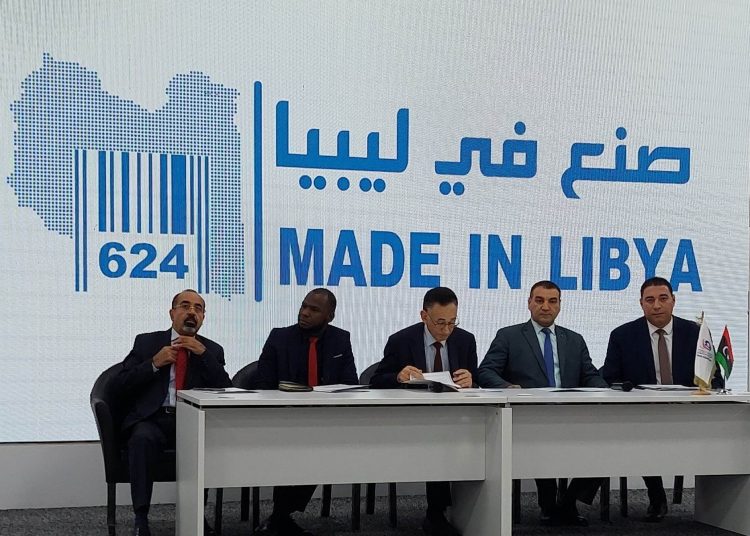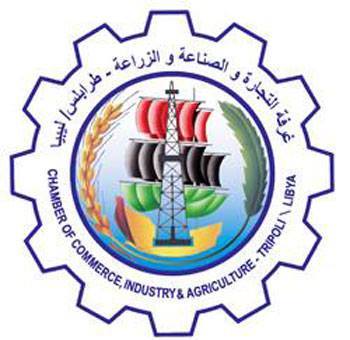The second edition of the ‘‘Made in Libya’’ event to be held in the capital of Niger, Niamey 6 to 11 March 2023 has the multi role of diversifying the economy, promoting Libyan exports and transit trade, Ali Nuseer the Managing Director of the Libyan Industry Union (LIU).
The LIU, the organiser of the Niamey event, held a press conference at the Tripoli International Fairgrounds today to promote the March event. Business leaders, Chambers of Commerce, African diplomats, including the Consul General from the Niger Embassy, attended the promotion event.
‘‘Made in Libya’’ in Tunis a success
Nuseer explained that the second edition of the ‘‘Made in Libya’’ event came about because of the ‘‘success’’ of the first edition held in Tunis in November 2021 which had hosted 150 companies and entities. He said because of that success it was decided to set a direction towards sub-Saharan Africa through Niger’s Niamey.
Niger to act as a base to penetrate other African states
The General Manager of the LIU said the Niamey event has been widened in its remit in that it will include participation not only by Libyan manufacturers, but also traders and service providers. Through this event Libya hopes to open channels and penetrate not only the market of Niger but use Niger as a base to penetrate the markets of its eight neighbouring states.
He said Libyan products are in demand and are trusted in Niger and so the Niamey event hopes to strengthen the position of Libyan products and brands in Niger, and then in Niger’s other neighbouring countries, and create direct and associated jobs in Libya at factories and along the transit route, create a transit trade industry.
He revealed that the export of products to Niamey for the event will act as a test run. Some goods will be shipped by sea while others testing the transit trade route by road. He expects the freight by road to take 20 days from the last Libyan point in Gatrun to Agadez, Niger and another 3 days to the capital Niamey. He said Libyan manufacturers and traders are not seeking a profit on this expedition and that the government of Niger has made an exception for products to enter tax and customs-free.
With regards to transit trade, Nuseer revealed that companies from Tunisia and Italy, and possibly others, will be participating in the Niamey event seeking transit routes for their products.
Libya wasted opportunities to exploit its geographic position
Economy and Trade Minister Mohamed Hwej said that Gulf states export in the hundreds of millions annually to Africa without being strategically located in Africa. Libya’s geographic position is an asset that needs the will power to be exploited, complaining that the country has wasted many opportunities over the decades to do this.
In a world that is a village of competing interests, Libya needs to diversify its economy beyond oil and create a diverse national industry including industry, trade, agriculture, services and a knowledge economy, Hwej added.
Need new business-led vision
He said Libya’s Chambers of Commerce, Business Councils, and Industrial Union (the business sector) need to create a new business and economic vision where the state is simply the maker and adjudicator of rules. They need to change the state’s current vision. He admitted that current rules and regulations are indeed a barrier to economic progress.
Transit trade along three routes
Minister Hwej said transit trade through Libya is one form of economic diversification and must be developed through the three probable routes: the Misrata-Tamenhint-Niger route; the Zuwara-Western-Mountain-Ghat route and the Benghazi-Kufra route.
Food security
Hwej also emphasised the policy of food security. The Russia-Ukraine war has highlighted the issue across the globe. The Minister noted as just one example how a barrel of olive oil today costs about 8 times the cost of crude hydrocarbon oil. He felt this was an obvious opportunity for Libya to try to develop.
Hwej was clear that this project, diversification and transit trade need to be initiated and powered by the private sector.
Libyan manufacturers seek equal footing with foreign importers
In the question-and-answer section of the press conference Libyan companies complained about the persistent bureaucracy and paper chase that hinders them. They complained how it takes up to 45 days to process Libyan exports which in the case of food products completely erodes their sell-by-date.
They asked to be treated equally with foreign exporters to Libya who have no such obstacles. Others asked for outright protectionism for Libyan industry to enable it to stand on its feet.
They also complained that work on the Gatron-Niger border road started in 2006/8 stopped in 2011 and never resumed.
Preparations for the second ‘‘Made in Libya’’ edition in Niamey, Niger progressing (libyaherald.com)










